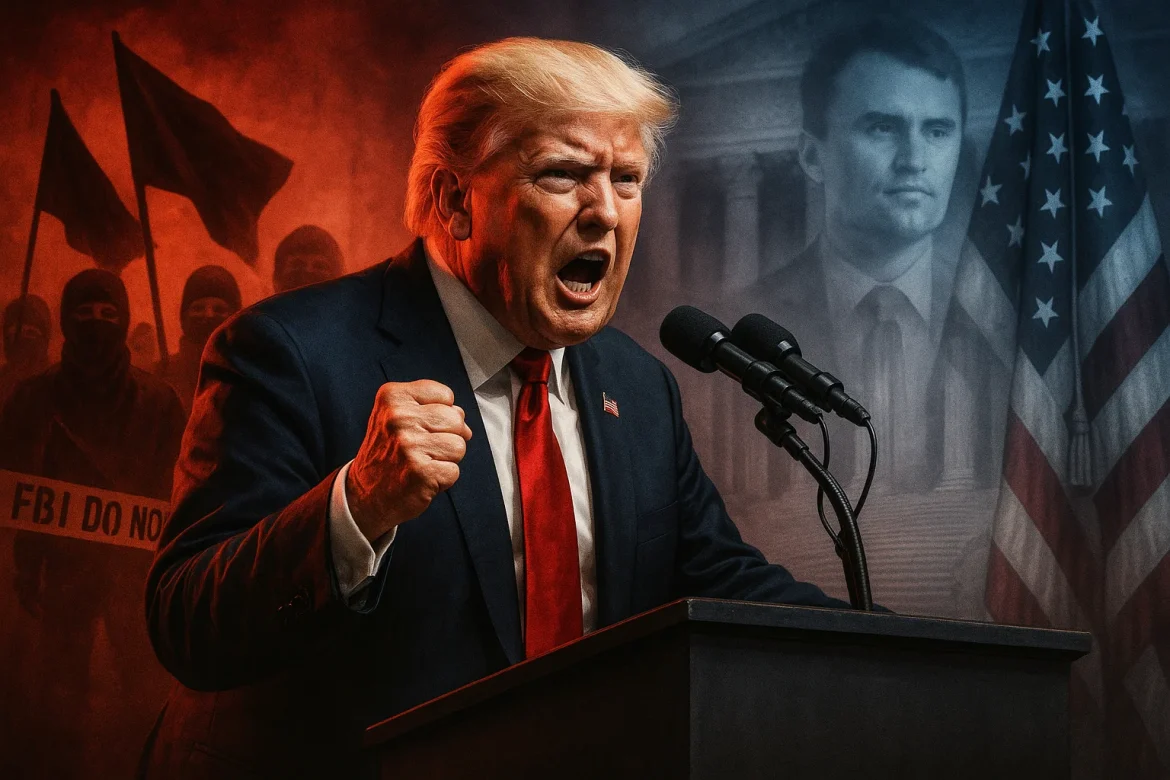US President Donald Trump has announced his intention to designate Antifa as a “major terrorist organization.”
The decision, delivered via his signature Truth Social updates, follows a recent surge in politically linked violence, including the charged case of conservative activist Charlie Kirk’s killing.
With emotions running high, Trump doubled down, calling Antifa a “sick, dangerous, radical left disaster” and promising a federal crackdown not just on the activists, but on anyone allegedly bankrolling their campaigns.
The administration maintains that rooting out extremism demands treating Antifa like any other threat to national security, but reactions across the nation remain anything but unanimous.
Charlie Kirk murder sparks Antifa crackdown debate
For Trump and his backers, this is about making a statement as much as it is about shaping policy.
The administration has pointed to the Kirk case as proof that “radical left” violence isn’t just a talking point.
Alleged links between Kirk’s killer, Tyler Robinson, and Antifa have provoked a storm of speculation online, especially after investigators found bullet casings inscribed with anti-fascist slogans at the scene.
FBI sources noted Robinson even confessed in an activist chat group, fueling the President’s calls for investigations into Antifa’s supposed funders and organizers.
But the move is raising sticky legal and practical questions.
Antifa, short for “anti-fascist,” isn’t a membership-based organization; it’s a diffuse, leaderless movement made up of loosely affiliated activists who pop up at rallies and counter-protests across the country.
Critics argue Trump is using the Kirk case as ammunition in a broader war on dissent, while some experts caution that criminalizing a decentralized movement risks overstepping First Amendment boundaries.
Meanwhile, supporters in Trump’s circle have floated the idea of using racketeering laws, like the RICO statute, to target funding networks and put pressure on left-wing groups as a whole.
Battle lines have been drawn, and it’s clear this is about more than just one headline crime; it is a test of how the government defines and prosecutes homegrown extremism.
Trump fuels debate on dissent and terror
If history is any guide, the coming weeks will see fierce arguments both in courts and on campaign trails.
Democrats have slammed the announcement as political theater, accusing the administration of exploiting high-profile violence to justify crackdowns on protest movements and chill broader dissent.
Legal experts have already lined up to challenge whether Trump’s designation carries any real enforceable weight, given that US law typically reserves “terrorist organization” status for groups based outside the country.
Nevertheless, the president’s allies remain defiant, vowing deep-dive probes into everyone allegedly tied to Antifa.
Beyond the Capitol, average Americans are left to parse what all this means. For some, it’s reassurance that law and order are a top priority. For others, it’s a signal to brace for increased surveillance and scrutiny.
But if there is one thing almost everyone can agree on, Trump’s campaign against Antifa has reignited an already smoldering debate about free speech, violence, and who gets to draw the line between protest and terrorism in twenty-first-century America.
The post Trump to designate Antifa as ‘terrorist organization’ after Kirk killing outcry appeared first on Invezz

